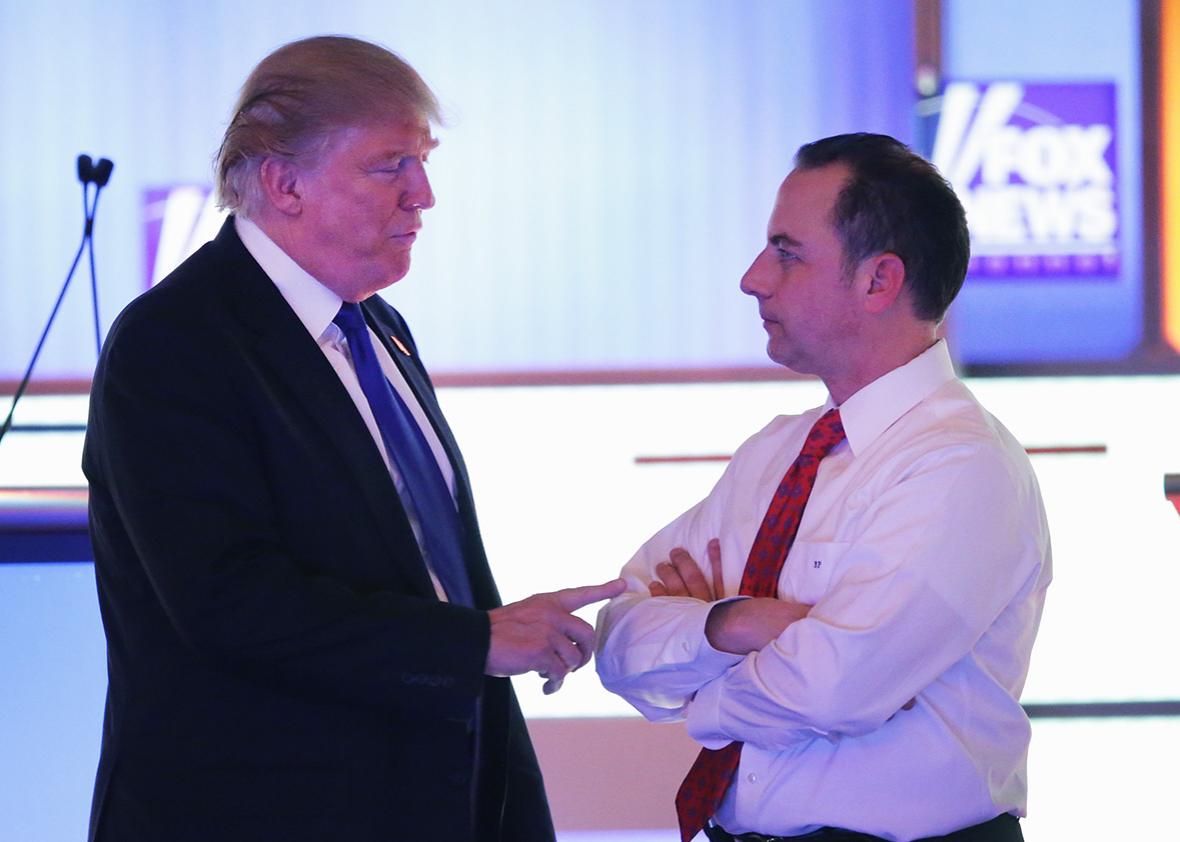The business of politics is lists. Lists of voters’ emails, phone numbers, who they are, what they like, and so on. Lists, lists, lists, for which a candidate, campaign, or consultant can fetch a handsome sum on the market. Private companies, like the Harold Ickes–founded Catalist, can build up their own data warehouses and partner with progressive clients. Newt Gingrich lost the Republican presidential primaries in 2012 but rents out the email list he built up to the highest bidder, whether that’s scammers offering secret cancer cures or Donald Trump. Newt Gingrich lives well. As does Ben Carson, whose list of millions of names could be worth $5 million to $6 million. Selling or renting lists can either be the silver lining for a losing candidate who held a grip over a firm core of supporters—or the whole point of the scam candidacy in the first place.
Speaking of which, who owns Donald Trump’s lists?
Joshua Green and Sasha Issenberg’s Bloomberg Businessweek cover story, published Thursday, outlines both the campaign’s strategy and expectations for the next two weeks as well as Trump’s (and his associates’) early post-election contingency plans in the off chance he doesn’t win the presidency. Much of the piece is adorable. These aides, like campaign CEO and ex-Breitbart chief Steve Bannon and data guy/campaign utility player Brad Parscale, imagine themselves as legendary, Rove-esque Republican electoral safecrackers giving us just a peek into their brilliance—as though they’re not senior figures in the most disastrous presidential campaign of modern times. (An unnamed senior campaign official, for example, seems quite proud of their ongoing “voter suppression” efforts, which are essentially just targeted messages aimed at softening Hillary Clinton’s support.)
Parscale, though, claims that the campaign’s pricey efforts to build out an expansive voter file nicknamed “Project Alamo” has been a success—and is something Trump could monetize after the election, perhaps as the foundation for a media network. “By Election Day,” Green and Issenberg write, “the campaign expects to have captured 12 million to 14 million e-mail addresses and contact information (including credit card numbers) for 2.5 million small-dollar donors, who together will have ponied up almost $275 million.” The piece continues later:
Digital strategists typically value contact lists at $3 to $8 per e-mail, which would price Trump’s list of supporters anywhere from $36 million to $112 million. The Trump enterprise could benefit from it in any number of ways. The easiest move would be for Trump to partner with Bannon’s global Breitbart News Network, which already has a grip on the rising generation of populist Republicans. Along with a new venture, Trump would gain a platform from which to carry on his movement, built upon the millions of names housed in Project Alamo. “This is the pipe that makes the connection between Trump and the people,” says Bannon. “He has an apparatus that connects him to an ever-expanding audience of followers.”
It’s the end of the piece where this gets interesting. Green and Issenberg write that “Trump will be better positioned than the RNC to reach this mass of voters because he’ll own the list himself.” Meanwhile, the Republican National Committee, with carefully chosen words, hints that it has a claim on the collected data.
Green and Issenberg write first that “the data operation in which Priebus and the RNC invested so heavily has fed into Project Alamo.” It’s followed by an interesting quote from RNC communications director and chief strategist Sean Spicer. Trump’s campaign “brought to the table this movement and people who were willing to donate and activate, and we brought to the table a four-year investment and said we can process that for you,” he says. “That willingness to embrace what the RNC built allowed them to harness that movement.” Embrace what the RNC built.
Whatever subtlety Spicer was trying to employ in saying this is ours he abandoned Thursday morning on Twitter. “The RNC owns the list,” he tweeted in response to someone claiming that Trump owns it. “The RNC owns the lists,” RNC press secretary Lindsay Walters said in response to the same tweet as well.
I’ve asked Walters for more comment—whether she’s saying the RNC is the sole owner, for example, or whether they’re talking about different lists—but have yet to get a response.
It’s difficult to see Trump—or for that matter Bannon and his ilk, who are using Trump as a vehicle for personal enrichment and advancement—simply allowing the RNC to maintain sole ownership of his lists, if that’s what they are indeed claiming to have. Donald Trump has sued over far, far less. As the Bloomberg Businessweek story notes, if it’s true that the Trump brand is fetching far fewer dollars now through hotels and other properties, monetizing his devoted core would be an obvious move. We don’t know if the shotgun marriage between Trump and the RNC will conclude in a messy, litigious divorce. But you try to imagine a more fitting end.
